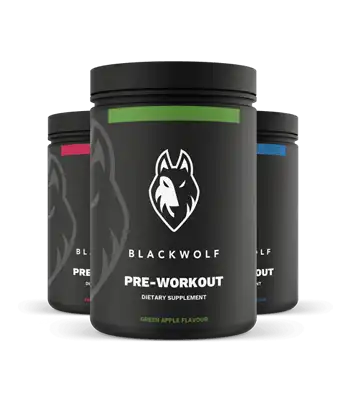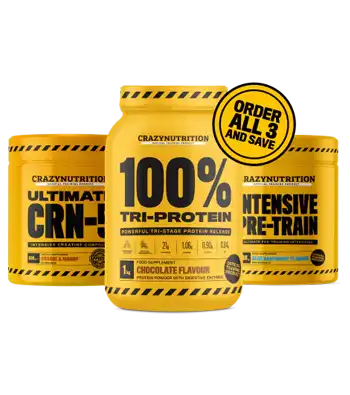Introduction
Shoulders are one of the most crucial muscle groups making up the most of the everyday skills and exercises. Increased total strength and athletic output, along with the physical appearance, are guaranteed if you have well-developed, powerful shoulders.
Bad posture, too much muscle imbalance, and a lack of concern for shoulder training are the inevitable consequences of ignoring the following. There are many benefits to having strong shoulders, including increasing upper body strength and shoulder joint stability and best exercise for mobility, as well as making the body more balanced.
In addition, the risk of injury can be reduced, particularly when it comes to doing such things as overhead tasks pushing, lifting, or tossing. Strong shoulders enhance one’s self-esteem and contribute to an athletic, impressive aspect.
Best Shoulder Exercises
1. Barbell Overhead Press
Barbell Overhead Press (Video Credit: Bobby Maximus YouTube Channel)
How to do it:
- Stand with your feet shoulder-width apart, holding a barbell at chest level with an overhand grip.
- Engage your core and keep your back straight.
- Press the barbell straight overhead, fully extending your arms.
- Pause briefly at the top, then slowly lower the barbell back to the starting position.
| Parameters | Barbell Overhead Press |
|---|---|
| Equipment | Barbell or Bodyweight |
| Muscles Trained | Front, side, and rear deltoids, triceps |
| Sets & Reps | 3-4 sets of 6-8 reps |
Benefits: The barbell overhead press is a compound exercise that builds overall shoulder strength and size. It also engages the core and legs, making it a great full-body exercise.
Tip: Bryan Wright, PT, DPT, OCS, MDT, Cert. DIN, says, “For the Barbell Overhead Press, maintaining shoulder integrity and alignment is crucial. I focus on engaging the core and ensuring the bar path stays straight above the midline. Avoid excessive arching of the lower back, as this can lead to unnecessary strain. Using lighter weights with higher reps can help maintain form and prevent injuries.”
2. Seated Dumbbell Shoulder Press
Exercise Demo: Seated Dumbbell Shoulder Press(Video Credit: Andrew Coates YouTube Channel)
How to do it:
- Sit on a weight bench or chair with your feet flat on the floor and hold a dumbbell in each hand at shoulder height, palms facing forward.
- Engage your core and keep your back straight.
- Press the dumbbells straight overhead, fully extending your arms.
- Pause briefly at the top, then slowly lower the dumbbells back to the starting position.
| Parameters | Seated Dumbbell Shoulder Press |
|---|---|
| Equipment | Dumbbell |
| Muscles Trained | Front and side deltoids, triceps |
| Sets & Reps | 3 sets of 10-12 reps |
Benefits: The seated dumbbell shoulder press isolates the shoulder muscles more than the barbell version, reducing the involvement of other muscle groups. This exercise also allows for a greater range of motion.
Tip: As per Bryan who share with us, “When performing the Seated Dumbbell Shoulder Press, I ensure my feet are firmly planted, back stable against the bench, and spine neutral. Emphasize control throughout the movement to focus on muscle engagement rather than sheer weight.”
3. Arnold Press
Dumbbell Arnold Press (Video Credit: Testosterone Nation YouTube Channel)
How to do it:
- Sit on a bench or chair with your feet flat on the floor and hold a dumbbell in each hand at shoulder height, palms facing your body.
- Engage your core and keep your back straight.
- Press the dumbbells straight overhead while rotating your palms outward, so they face forward at the top of the movement.
- Pause briefly at the top, then slowly reverse the motion, lowering the dumbbells back to the starting position while rotating your palms inward.
| Parameters | Arnold Press |
|---|---|
| Equipment | Dumbbell |
| Muscles Trained | Front and side deltoids, triceps |
| Sets & Reps | 3 sets of 8-10 reps |
Benefits: The Arnold press is a unique shoulder exercise that incorporates a rotational movement, hitting the deltoids from all angles. This variation also challenges your shoulder stability and control.
Pro Tip: Sean Klein, Certified Personal Trainer , shares, “Start with dumbbells in front of your shoulders, palms facing you. As you press up, rotate your hands so your palms face forward at the top. This rotation engages more of the shoulder muscles throughout the lift.”
4. Lateral Raises
How To Dumbbell Lateral Raise (Video Credit: Mind Pump TV YouTube Channel)
How to do it:
- Stand with your feet shoulder-width apart, holding a dumbbell in each hand with an overhand grip.
- Keep your arms straight with a slight bend in the elbows.
- Raise the dumbbells out to the sides until your arms are parallel to the floor.
- Pause briefly, then slowly lower the weights back to the starting position.
| Parameters | Lateral Raises |
|---|---|
| Equipment | Dumbbell |
| Muscles Trained | Side deltoids (lateral deltoids) |
| Sets & Reps | 3 sets of 12-15 reps |
Benefits: Lateral raises are an isolation exercise that specifically targets and builds the side deltoids, contributing to broader and more defined shoulder caps.
Pro Tip: Sean, states, “Keep your elbows slightly bent and lift the weights just to shoulder height to maintain tension on the side deltoids. Think of pouring water from a jug at the top of the movement to engage the deltoid cap fully.”
5. Front Raises
Dumbbell Front Raise (Video Credit: My Training App YouTube Channel)
How to do it:
- Stand with your feet shoulder-width apart, holding a dumbbell in each hand with a neutral grip (palms facing inwards).
- Keep your arms straight with a slight bend in the elbows.
- Raise the dumbbells in front of you until your arms are parallel to the floor.
- Pause briefly, then slowly lower the weights back to the starting position.
| Parameters | Front Raises |
|---|---|
| Equipment | Dumbbell |
| Muscles Trained | Front deltoids (anterior deltoids) |
| Sets & Reps | 2-3 sets of 10-12 reps |
Benefits: Front raises isolate and target the front deltoid heads, helping to build up this often-neglected area for a more complete shoulder development.
Pro Tip: “Alternate arms to keep constant tension on the front deltoids and prevent momentum from taking over. Raise the weight to just above parallel to the floor to keep the focus on the shoulders rather than the neck.”
6. Bent-Over Rear Delt Raises
Bent Lateral Raise (Video Credit: Renaissance Periodization YouTube Channel)
How to do it:
- Stand with your feet shoulder-width apart and bend at the hips, keeping your back straight and core engaged.
- Hold a dumbbell in each hand with a neutral grip, arms hanging down in front of you.
- Raise the dumbbells out to the sides until your arms are parallel to the floor, squeezing your shoulder blades together.
- Pause briefly, then slowly lower the weights back to the starting position.
| Parameters | Bent-Over Rear Delt Raises |
|---|---|
| Equipment | Dumbbell or Bodyweight |
| Muscles Trained | Rear deltoids (posterior deltoids) |
| Sets & Reps | 3 sets of 12-15 reps |
Benefits: Bent-over rear delt raises specifically target and isolate the often-neglected rear deltoid heads, helping to build a more balanced and complete shoulder development.
Pro Tip: “Bent-Over Rear Delt Raises are great for the posterior deltoids. Bending at the hips with a flat back, I lift the dumbbells laterally, focusing on squeezing the shoulder blades together. This engages the rear delts and upper back, promoting balanced shoulder development.”
7. Upright Rows
Barbell Upright Rows (Video Credit: Renaissance Periodization YouTube Channel)
How to do it:
- Stand with your feet shoulder-width apart, holding a barbell or EZ-bar with an overhand, shoulder-width grip.
- Keep your core engaged and your back straight.
- Pull the weight straight up towards your chin, keeping it close to your body.
- Pause briefly when the bar reaches chest level, then slowly lower it back to the starting position.
| Parameters | Upright Rows |
|---|---|
| Equipment | Barbell |
| Muscles Trained | Side deltoids (lateral deltoids), trapezius muscles, biceps |
| Sets & Reps | 3 sets of 10-12 reps |
Benefits: Upright rows effectively target the side deltoids and trapezius muscles, contributing to broader and more defined shoulders while also working the biceps. One of the best barbell exercise.
Pro Tip: “Upright Rows should be performed with careful attention to shoulder alignment to avoid impingement. I grip the barbell shoulder-width apart, lifting it close to my body to chin level while keeping elbows higher than the forearms. Controlled movements help target the delts and upper traps.”
8. Face Pulls
How To: Face Pull (Video Credit: ScottHermanFitness YouTube Channel)
How to do it:
- Attach a rope attachment to a high-pulley cable station.
- Grab the rope ends and stand with your feet shoulder-width apart, arms extended in front of you.
- Pull the rope towards your face by squeezing your shoulder blades together.
- Pause briefly, then slowly return to the starting position.
| Parameters | Face Pull |
|---|---|
| Equipment | Rope with pulley |
| Muscles Trained | Rear deltoids (posterior deltoids), upper back muscles (rhomboids, trapezius) |
| Sets & Reps | 3 sets of 15-20 reps |
Benefits: Face pulls effectively target and strengthen the rear deltoids and upper back muscles, improving posture and shoulder stability.
Pro Tip: “Position the rope at about eye level and pull towards your forehead, keeping your hands high. Focus on squeezing your rear delts and upper traps at the end of the movement for optimal engagement,” says, Sean.
9. Dumbbell Shrugs
How To: Dumbbell Shrugs (Video Credit: ScottHermanFitness YouTube Channel)
How to do it:
- Stand with your feet shoulder-width apart, holding a dumbbell in each hand with an overhand grip.
- Keep your core engaged and your back straight.
- Shrug your shoulders up towards your ears by raising your shoulders as high as possible.
- Pause briefly at the top, then slowly lower your shoulders back to the starting position.
| Parameters | Dumbbell Shrugs |
|---|---|
| Equipment | Dumbbell |
| Muscles Trained | Trapezius muscles |
| Sets & Reps | 3 sets of 15-20 reps |
Benefits: Dumbbell shrugs directly target and build up the trapezius muscles, contributing to a fuller and more defined shoulder appearance.
Pro Tip: “Instead of just lifting your shoulders straight up, try rolling them back slightly to engage both the traps and the upper back muscles more fully.”
10. Dumbbell Hand-Assisted Push-Ups
Build More Muscle with this Push Up Progression | DUMBBELL DEFICIT PUSH UP (Video Credit:
Mike | J2FIT Strength & Conditioning YouTube Channel)
How to do it:
- Assume a push-up position with your hands shoulder-width apart and your body in a straight line.
- Place a dumbbell on the floor underneath each hand.
- Keeping your core engaged, perform a push-up by lowering your chest towards the floor.
- Push back up to the starting position, using the dumbbells as a support for your hands.
| Parameters | Dumbbell Hand-Assisted Push-Ups |
|---|---|
| Equipment | Dumbbell |
| Muscles Trained | Front and side deltoids, triceps |
| Sets & Reps | 3 sets of 10-15 reps |
Benefits: Dumbbell hand-assisted push-ups work the front deltoids, chest, and triceps while also challenging core stability and shoulder strength [1].
Pro Tip: “For Dumbbell Hand-Assisted Push-Ups, dumbbells provide a greater range of motion and stability challenge. I place dumbbells on the floor, gripping them during push-ups. This helps enhance shoulder and chest engagement while supporting wrist health. Control the descent and ascent for maximum benefit,” mentioned by Bryan.
Sample Shoulder Workout Routines
Beginner shoulder workout
- Dumbbell Shoulder Press: 3 sets of 10-12 reps
- Lateral Raises: 3 sets of 12-15 reps
- Front Raises: 2 sets of 10-12 reps
- Bent-Over Rear Delt Raises: 2 sets of 12-15 reps
Intermediate shoulder workout
- Barbell Overhead Press: 4 sets of 6-8 reps
- Arnold Press: 3 sets of 8-10 reps
- Upright Rows: 3 sets of 10-12 reps
- Face Pulls: 3 sets of 15-20 reps
- Dumbbell Shrugs: 3 sets of 15-20 reps
Advanced shoulder workout
- Push Press: 4 sets of 5 reps
- Seated Dumbbell Shoulder Press: 3 sets of 10-12 reps
- Lateral Raises: 3 sets of 12-15 reps
- Bent-Over Rear Delt Raises: 3 sets of 12-15 reps
- Front Raises: 3 sets of 10-12 reps
- Face Pulls: 3 sets of 15-20 reps
Understanding Shoulder Muscles Anatomy
3 deltoid heads (front, side, rear)
 Labeled diagram of the human shoulder anatomy
Labeled diagram of the human shoulder anatomyThe broad, triangular deltoid muscle is responsible for the rounded shoulder shape. It is separated into three separate heads, each of which has a special purpose and significance in shoulder movements.
Front Deltoid: The front portion of the shoulder, but not the biggest, anterior deltoid is in charge of flexing your arm forward and across your torso. Thus, the proper functioning of this muscle is vital while performing push-ups, shoulder press exercises, and front raises.
Side Deltoid: The muscle above the shoulder in terms of size and definition is the lateral, or side, deltoid. Its primary job is to abduct your arm away from your body, such as during upright rows or lateral raises. Lateral equal well-developed deltoids are necessary for the sought “boulder shoulder” look .
Rear Deltoid: Behind the shoulder is a smaller muscle group that extends the arm back, comprising the rear deltoid. Bent over rows exercise, face pulls, and reverse flies are examples of shoulder exercises that activate this muscle. This muscle is crucial since robust rear deltoids help to avoid rounded shoulders and boost posture while also improving the shoulder’s aesthetics.
Other muscles involved (rotator cuff, traps, etc.)
Although the deltoids are the main muscles that move the shoulder joint, several additional muscles collaborate to maintain stability and appropriate shoulder function. Among these are:
Rotator Cuff Muscles: The rotator cuff is a collection of four tiny muscles that surround the shoulder joint: the subscapularis, teres minor, supraspinatus, and infraspinatus. Their main job is to keep the shoulder stable when it moves and avoid dislocation.
Trapezius Muscles: Reaching from the base of the cranium to the mid-back, the trapezius is a broad, flat muscle. It is separated into three sections (upper, middle, and lower) and is essential for rotation, depression, and elevation of the shoulder. Robust trapezius muscles facilitate overhead motions and enhance posture.
Serratus Anterior: This muscle, which connects to the shoulder blade, is situated on the side of the chest wall. It stabilizes the shoulder during pushing and pulling motions and is in charge of protraction, or drawing the shoulder blade forward.
Rhomboids: Major and minor rhomboid muscles are found in the upper back and are in charge of retracting, or pushing back, the shoulder blades. They cooperate with the rotator cuff and trapezius muscles to preserve stability and appropriate shoulder posture.
Proper Form and Technique Tips for Best Shoulder Exercises
- To avoid injury and guarantee correct form, keep your spine in a neutral position and contract your core with every exercise.
- To optimize shoulder engagement, maintain a retracted and depressed (drawn back and down) posture.
- Maintain equilibrium with the weight over the full range of motion to prevent jerky or momentum-driven movements.
- Inhale during the eccentric (lowering) phase and exhale during the concentric (lifting) phase of your breathing.
- Choose a weight that pushes you while letting you keep your form correct, particularly for isolated movements like front and lateral lifts.
- Pay attention to your body and modify the weight, repetitions, or sets [2] as necessary to prevent overexertion or injury.
Benefits of Best Shoulder Exercises
Increased Strength and Stability:
Regular acupuncture sessions can help build stronger, more stable shoulders, which are essential for heavy lifting and complex movements.
Reduced Muscle Soreness:
Dr. Lijana Shestopal, DTCM, C.SMA, says, “ Orthopedic Acupuncture can decrease muscle soreness post-workout by improving blood circulation and reducing inflammation, allowing for quicker recovery and more frequent training sessions.”
Enhanced Healing:
For those dealing with shoulder injuries or strains, acupuncture speeds up the healing process, which helps athletes return to their routines faster.
Addressing Imbalances:
Orthopedic acupuncture can identify and correct muscle imbalances and weaknesses that often lead to shoulder injuries, providing a proactive approach to injury prevention, says.
Improved Flexibility and Range of Motion:
By reducing muscle tension and promoting relaxation, acupuncture enhances the flexibility and the range of motion of muscle groups, critical for safe and effective shoulder workouts.
 Conclusion
Conclusion
Enhancing posture, avoiding injuries, and increasing upper body strength for exercises all depend on shoulder exercise. Your ability to improve in other exercises and activities may be hampered by imbalances and weaknesses caused by neglecting your shoulder muscles.
Strong, healthy, and impressive shoulders will improve your overall fitness and confidence. A well-rounded shoulder routine should target all three deltoid heads as well as the supporting muscles.
2 Sources
BodybuildingReviews avoids using tertiary references. We have strict sourcing guidelines and rely on peer-reviewed studies, academic researches from medical associations and institutions. To ensure the accuracy of articles in BodybuildingReviews, you can read more about the editorial process here.
- Kubo K, Ikebukuro T, Yata H. Effects of 4, 8, and 12 Repetition Maximum Resistance Training Protocols on Muscle Volume and Strength. J Strength Cond Res. 2021 Apr 1;35(4):879-885. doi: 10.1519/JSC.0000000000003575. PMID: 32304514.
- Seguin RC, Cudlip AC, Holmes MWR. The Efficacy of Upper-Extremity Elastic Resistance Training on Shoulder Strength and Performance: A Systematic Review. Sports (Basel). 2022 Feb 14;10(2):24. doi: 10.3390/sports10020024. PMID: 35202063; PMCID: PMC8879764.








